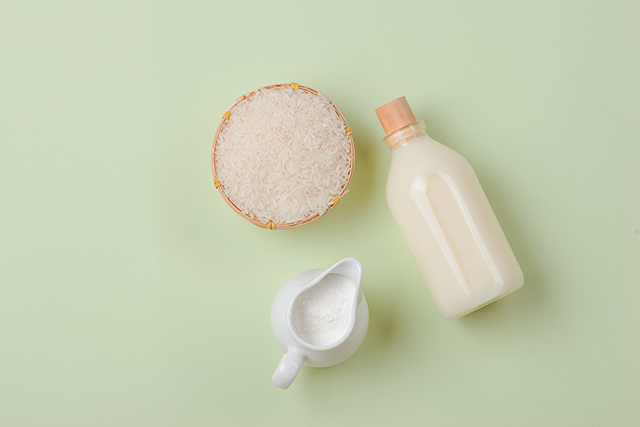Introducing your baby to solid food… and neurotoxins: Elevated levels of mercury found in infant rice cereal
09/18/2018 / By Jessica Dolores

One of the biggest problems our planet is facing is the prevalence of heavy metals in the environment. Mercury, in particular, is not only ubiquitous, but it’s also found in places people are least likely to look. That is what researchers from the U.S. and China found out in their study published in the Journal of Agriculture and Food Chemistry. In the study, they revealed that methylmercury, a chemical that may cause health problems, could found in infant rice cereals that were produced in polluted areas.
Despite popular belief, mercury can naturally occur in the environment. Its natural form is mercuric sulfide, which is better known as cinnabar. The problem occurs when the chemical is released into the environment through anthropogenic (man-made) means. Once this happens, mercury becomes a pollutant – and a global one at that. Unfortunately, there are many ways a person can be exposed to mercury. This can either be through inhalation of mercury vapors, exposure from dental amalgams and medical treatments, and consumption of contaminated food and drink.
Bodies of water, in particular, contain what’s known as methylmercury, the converted form of mercury after it has bioaccumulated in marine life. Primarily, humans are exposed to the substance when they eat large, predatory fish such as tuna and swordfish.
A known side effect of methylmercury is its neurotoxicity (risk of brain damage), of which the fetus is the most sensitive to its effects. When the central nervous system is damaged, symptoms such as mental retardation and decreased motor function may occur.

For the study, the research team looked at 119 infant cereal samples that were manufactured using different grains. Of the products that were bought from various regions in the U.S. and China, scientists found that rice-based cereals contained higher levels of methylmercury than those that were made without rice. This led scientists to believe that the rice grain could be a likely culprit. Moreover, rice cereals from the two countries had a mean concentration of 2.28 micrograms of methylmercury per kilogram. Based on calculated data, this meant the infants who consumed these types of cereal are exposed to up to 0.123 micrograms of mercury per kilogram of body weight per day, which exceeds the Environmental Protection Agency reference daily dose of 0.1 microgram/kg/day.
What’s in a spoonful of rice cereal?
Aside from mercury, rice cereals contain arsenic, which is another dangerous chemical. Arsenic, a known carcinogen, can increase the risk of cardiovascular and immune diseases, and children exposed to even low levels of the chemical are at can severely impair neurodevelopment. In an article, Dr. Ruth Lawrence of the University of Rochester Medical Center provides the following pieces of advice on whether to feed babies with rice cereal.
- Heed the ‘six-month’ rule. Don’t give your baby rice cereal – or any kind of solid food – before he reaches six months. Breastmilk, in particular, can supply his requirements for nutrition.
- If your baby is ready to eat cereals, include just the right amount in his diet. This makes it easy for your baby to adjust from breastmilk to solid food.
- When your baby is a year old – an age when his brain development is at its fastest – heed the American Academy of Pediatrics’ recommendations. Don’t make rice cereal his only meal, and don’t give it to him on a daily basis.
- Expand your infant’s food choices, but opt for single-grain, not multi-grain cereals. This way, you can check your baby’s reaction to different grains and prevent a problem before it gets out of control.
- When your baby is ready for vegetables and fruits, stick to one food item at a time. Then watch if your baby reacts favorably or not.
- Beware of other sources of arsenic. Besides rice cereal, these include groundwater, Brussels sprouts, dark meat fish like tuna, mackerel, sardines, bluefish and swordfish and chicken.
As in everything, the key lies in moderation. Let your baby enjoy a variety of foods to enhance his health. This way, he will grow up to be the strong, lively and disease-free child you want him to be.
Sources include:
Submit a correction >>
Tagged Under:
arsenic, food toxins, infant cereals, mercury, methylmercury, rice cereal, toxic elements, toxic ingredients
This article may contain statements that reflect the opinion of the author





















